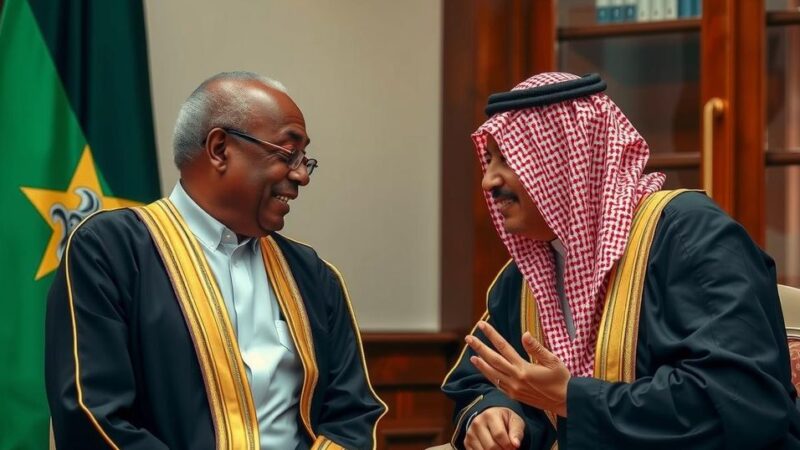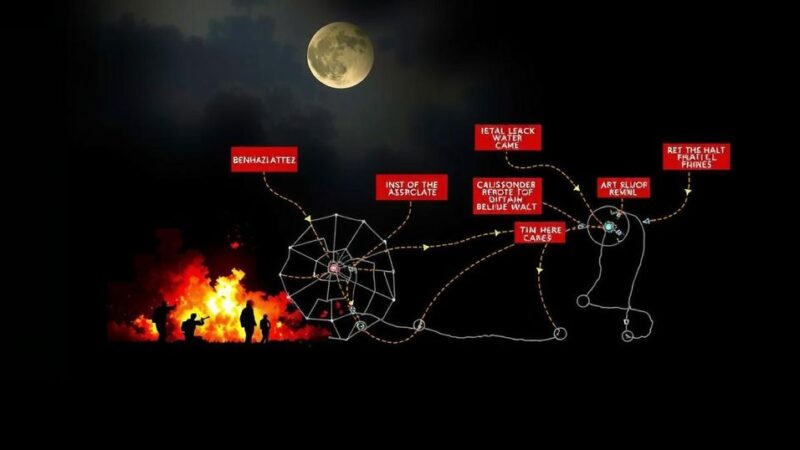Indonesian President Joko Widodo condemned the assassination of Hamas leader Ismail Haniyeh, calling it an unacceptable act of violence within Iran’s sovereign territory. The incident follows ongoing tensions in the Middle East, exacerbated by Israel’s military actions in Gaza, leading to significant civilian casualties. Japan also called for a reduction in tensions following Haniyeh’s assassination.
Indonesian President Joko Widodo, commonly referred to as Jokowi, has issued a strong condemnation regarding the assassination of Ismail Haniyeh, the Hamas leader, calling the act an “unacceptable act of violence and murder”. During his remarks, he emphasized that this incident occurred within the sovereign territory of Iran, underscoring the violation of Iran’s sovereignty, which he stated “cannot be tolerated”. This condemnation followed the announcement made by Hamas and Iranian officials about Haniyeh’s death due to an Israeli airstrike targeting his residence in Tehran, shortly after his participation in the inauguration of President Masoud Pezeshkian of Iran. Although Israel has refrained from publicly acknowledging its involvement, hints from Prime Minister Benjamin Netanyahu suggest potential Israeli complicity in the assassination. In addition to Indonesia’s strong denunciation, Japan has advocated for the cessation of escalating tensions in the Middle East. Chief Cabinet Secretary Yoshimasa Hayashi articulated the importance of avoiding retaliatory actions and emphasized Japan’s commitment to diplomatic efforts aimed at de-escalating the situation. The backdrop of these events includes a severe humanitarian crisis in Gaza, where ongoing hostilities have resulted in significant casualties and widespread destruction, drawing international condemnation and accusations of war crimes against Israel.
The recent assassination of Hamas leader Ismail Haniyeh marks a serious escalation in the ongoing conflict between Israel and Hamas, which has intensified since the Palestinian resistance group launched an attack on Israel on October 7, 2023. This incident highlights not only the increasing volatility in the region but also the implications of interventions on sovereign nations’ territories. The assassination, conducted via an airstrike in Tehran, raises critical questions regarding state sovereignty and the legitimacy of extraterritorial military actions. Concurrently, the humanitarian situation in Gaza has deteriorated significantly, with reports indicating rising civilian casualties and destruction amid a protracted military offensive led by Israel.
In conclusion, Indonesian President Joko Widodo’s condemnation of the assassination of Haniyeh as an “act of violence and murder” reflects broader concerns regarding sovereignty and the escalation of violence in the region. The absence of a clear Israeli admission of responsibility, coupled with international calls for de-escalation, signifies the complex and sensitive geopolitical dynamics at play. The humanitarian crisis in Gaza remains critical, demanding urgent global attention and action.
Original Source: www.aa.com.tr






